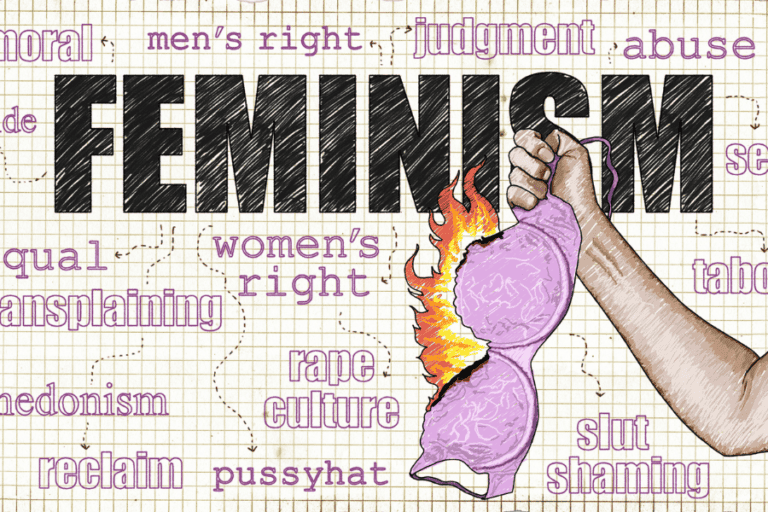
Understanding your Flaws
Receiving criticism about your flaws might be difficult, but it’s important to remember that flaws are a universal component of being human, and they’re fine. Acknowledging your flaws is the first step toward improving yourself. Consider the following when someone points out your flaws:
Listen
When someone points out your weaknesses, using a mindful strategy can help you turn the situation into an opportunity for personal improvement. To get started, listen to what is being said without immediately absorbing it on a personal level. Listening to their opinions might help you understand yourself and your actions better.
Don’t Take It feedback Personally
Receiving criticism might seem like a punch in the gut, but it’s important to realize that it’s not a personal attack. Perhaps the individual pointing out your flaws is only looking out for you or trying to help you improve. Don’t go into defensive mode or take it personally.
Reflect on what they had to say
Pause for a moment and think about what was mentioned. See if there’s some truth to it and whether it’s something you can improve on. Reflecting on your flaws is a way to get to know yourself better and boost your self-awareness.

Take Action and improve your flaws
Think about the feedback, then act. If you agree with what they said, figure out exactly what you’ll do to fix and improve yourself or your performance. Doing this shows you’re taking charge and using criticism to get better, proving you’re committed to growing and improving yourself.
Always remember that no one is perfect, and it’s perfectly fine to have flaws. Embracing and admitting your imperfections is not a sign of weakness; rather, it is a show of strength and self-awareness. When you own your flaws, you demonstrate the determination to confront them and the ability to focus on becoming a better version of yourself.
Responding to Criticism
Handling criticism is not always easy, but it is a necessary step on the path to personal and professional development. Effectively addressing criticism necessitates a methodical approach and a desire to learn from constructive suggestions. Here are some techniques for dealing with criticism and using it as a fuel for growth:
Staying Calm when people point out flaws
It is important to keep your cool when confronted with criticism. It’s perfectly normal to feel agitated, but taking a deep breath and remaining calm can help a lot. Maintaining your composure allows you to listen better and reply more carefully, making the issue simpler to manage.
Listening Actively
Listening actively when responding to criticism is an outstanding ability. Instead of just hearing the words, strive to listen in and understand what the individual is saying. Avoid leaping to conclusions or formulating your response while they are still speaking. This not only shows respect for their point of view but also allows you to answer more deliberately and constructively.

Asking for clarification about the feedback
Asking for clarification when responding to criticisms can make all the difference. Never be afraid to ask for an explanation if anything is unclear or if you require more information. It enables you to reply more effectively and demonstrates that you’re sincerely attempting to get their viewpoint.
Effectively handling criticism calls for a combination of proactive commitment to improvement, active listening, and emotional intelligence. By implementing these strategies, you foster a productive and positive interpersonal dynamic in addition to improving your own personal and professional development.
19 things to say when someone points out your flaws
1. Can you help me understand that better?
2. Could you provide more context about your feedback?
3. What specifically do you think I could improve on?
4. Thank you for the feedback. I will work on improving (fill in the blank).
5. I appreciate you having the courage to share that with me. We can’t fix what we don’t know, right?
6. I really appreciate your honesty. They say that feedback is the breakfast of champions.
7. I hope I can grow as a person from this, and I appreciate your constructive criticism.
8. I know that I have room for improvement in that area, and I am trying to implement some changes.
9. I will work on that. I am trying my best but nobody is perfect.
10. I am glad you caught that error.
11. You know what they say, practice makes progress.
12. Thank you for pointing that out and giving me a chance to fix the problem.
13. Thank you for your feedback, I’ll take it into consideration.
14. We are all human beings who make mistakes. I am trying the best that I can.
15. I don’t accept feedback from people who don’t have the life that I am aspiring to.
16. I think you have a lot of things that you need to work on yourself.
17. I hear what you’re saying, but respectfully, I disagree.
18. You know what they say, practice makes progress.
19 I hear your constructive feedback and I will strive to implement the necessary improvements.
More posts you might like
- How to deal with people who belittle you
- Stand up for yourself without being rude
- More comebacks you might like
Learning from the Experience
Learning from experiences, especially those that involve criticism, is an important aspect of personal and professional development. Consider problems to be learning opportunities rather than disappointments. Here are some crucial points to consider when seeking to learn from your experiences:
Reflecting on the Criticism
Reflecting on criticism requires more than just examining the words said, it also entails exploring it for important lessons. It’s like a mirror reflecting your behaviors, thoughts, and reactions. Consider how you responded to the criticism—were you defensive, open, or a combination of the two?
Making Necessary Changes and improving your flaws
Making necessary changes in response to criticism is like shaping a better version of oneself. After you’ve considered the feedback, it’s time to roll up your sleeves and get to work. Begin by identifying areas that could benefit from improvement based on the feedback. It might involve adjusting your approach, changing your behaviors, or developing specific talents.
Here are some things you can do to make the necessary changes:
- Identify which behaviors or mental patterns must be modified.
- Set attainable goals for yourself.
- Make a plan to reach your goals.
- Keep track of your work and make changes as needed.
- Celebrate your accomplishments along the way.
You’re not only improving when you actively address the areas that criticism has brought to light; you’re also exhibiting resilience and a proactive approach to personal growth.
Maintaining Self-Esteem
Maintaining self-esteem after criticism is like caring for a delicate plant. Begin by acknowledging that criticism does not define your complete self. It’s all part of the greater picture, and it has no bearing on your worth or successes.

Focusing on Strengths
Focusing on your strengths is like developing personal superpowers. Instead of focusing entirely on areas that require development, take time to enjoy and recognize your strengths. Determine your distinct talents, skills, and positive characteristics that contribute to your success.
Practicing Self-Love when you feel criticized
Self-love is equivalent to cultivating a deep, meaningful connection with yourself. It entails treating yourself with the same consideration, empathy, and compassion that you would show to a close friend. It entails cultivating a healthy and caring connection with oneself, acknowledging one’s worth, and valuing one’s well-being.
Use criticism to help you improve rather than as a personal assault. Accept it as an opportunity to learn and grow, while remembering that self-development is a continual process. You strengthen your resilience and preserve a good feeling of self-worth by cultivating your self-esteem in the face of criticism.
The Role of counselling and self care
I Should Have Said Media will earn a commission after clicking links on this page at no additional cost to you. Learn more.
When you are dealing with someone who points out your flaws and you find it stressful, consider getting support from a professional. Talking to a counselor is a great way to work through a challenging situation, and help you find some strategies to work through the person’s behaviour.
Better Help is a great resource where you can talk to a counselor from the comfort of your own home.
Taking care of your own needs isn’t selfish, and you will feel better in the long run.







